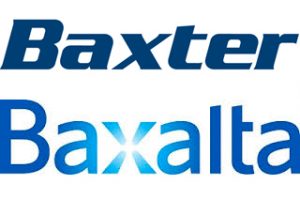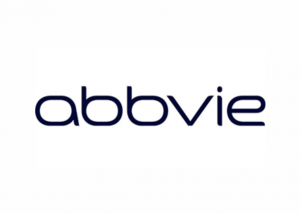Portfolio Manager Giorgio Caputo of First Eagle Investment Management says Nestle SA (ADR) (OTCMKTS:NSRGY) and Danone SA (ADR) (OTCMKTS:DANOY) are similar in that they are both expected to offer long-term earnings growth as food consumption increases globally.
What I think that is interesting about these companies is that, even though they’re developed-market businesses, almost half of their sales come from emerging markets, where you have a very nice tailwind from a shift in consumer preferences toward processed foods. So as people become wealthier, they tend to consume more processed food.
Both businesses have very impressive market shares in a number of product lines. Nestle is significantly larger and more diversified. They make everything from coffee with brands like Nespresso and Nescafe to frozen pizza and confectionary goods.
Danone is a bit more focused on dairy and yogurt. Danone has had some issues with two declining products, Activia and Actimel. We believe that these declines have masked the company’s underlying revenue growth and that these declines are running their course, so investors will be able to see that underlying revenue growth more clearly in the years ahead. They really provide very attractive dividend yields and focus on cash returns to equity holders.

Fomento Economico Mexicano SAB
Eric Chenoweth, Co-Portfolio Manager at Scout Investments, says Fomento Economico Mexicano SAB (ADR) (NYSE:FMX), or Grupo FEMSA, holds fast-growing legacy businesses that will benefit the company in the future.
Grupo FEMSA in Mexico has been in and out of our top 10 over the last year. It plays well into what we talk about as far as having high-return growth. It’s a company that is known for its position in Coke FEMSA (NYSE:KOF), which is a Coke distributor throughout Mexico and a lot of Latin America, and also the Philippines. And they own about half of that company, about 48% of Coke FEMSA.
They also own about 20% of Heineken (OTCMKTS:HINKY), which is a legacy position that they’ve mentioned that, at some point, they’d like to exit. So the company has some legacy businesses you don’t think of as fast growth. Heineken is probably growing low to mid single digits. Coke FEMSA is still growing mid to high single digits. However, FEMSA has been investing heavily in some high-return growth businesses that make up over a third of the overall group value in our estimate.
Chenoweth says OXXO is also a Grupo FEMSA business that is growing very rapidly, as it continues to build out approximately 1,200 convenience stores each year.
Same-store sales have been growing between 3% and 9% as stores mature, and OXXO’s value proposition improves. OXXO has added more SKUs that get replenished more frequently. They’ve also added prepared foods.
Steady topline growth and margin improvement should boost cash flow 15% to 20% a year. FEMSA has learned from OXXO that there are a lot of retail formats that are underrepresented in Mexico and Latin America. Drug stores and gas stations are formats that offer FEMSA considerable growth potential in coming years. And drug stores are off to a good start. FEMSA is at the point where it should start to gain bargaining power with large drug companies.
So that will do a couple of things. It will allow them to take down prices and improve store margins. We think, whenever the Heineken stake gets liquidated someday, that will provide a lot of cash for the company to reinvest in much higher growth, higher margin businesses. Heineken’s shares are currently about a third of the value of FEMSA. So we’re excited about FEMSA.
Senior Equity Analyst Brett Horn of Morningstar shares his review of American International Group Inc (NYSE:AIG), which he says is trading at a substantial discount.
…We don’t think that AIG ever will have an economic moat, but it trades for 0.7 times book, and, in my opinion, management, while they certainly have their stumbles recently, has a reasonable plan in place to get the company back to acceptable returns. Even if they don’t, they have activists like outside investor Carl Icahn who is going to hold them accountable. If they can’t execute, you’re going to see a change.
So I think there is greater possibility for them and for AIG’s underlying performance to improve over time. Our valuation is roughly book value. I said we don’t consider it a high-quality franchise, but I think there’s potential for the underlying results to improve and for the stock to get repriced a bit higher in the coming years.
…A lot of the problems leading up to crisis — even AIG, it never participated in credit default swaps — was that the underlying franchise had historically struggled quite a bit because of a lack of discipline. Peter Hancock has a reverse course on that. I think he gets it. He’s trying to change the culture and to reduce costs, and that’s really the only thing that a manager at an insurance company can do.
These things take time. AIG is a very large organization. They are not going to switch on a dime, but I think he is laying the groundwork. Admittedly, 2015 was something of a lost year in terms of making improvements on that score, but I think the overall plan is sound, and he just needs some time to execute it.
Senior Analyst Amit Kumar of Macquarie Group Limited says Allstate Corp (NYSE:ALL) is closing the gap with Progressive Corp (NYSE:PGR) after putting corrective actions in place to improve its book.
Moving onto the personal lines space, I would pick Allstate as my top pick. The reason is fairly simple: The company witnessed adverse trends at the end of 2014. They put corrective actions in place which included pricing actions, culling underperforming business and expense reduction initiatives in place.
As a result, in Q4 of 2015, we saw improving data. Again, one quarter does not make a trend, but Allstate is clearly on the right path toward fixing their book.
When you compare Allstate versus Progressive and then you look at the return on equity, the gap is not that large. Allstate is a 10%, 11% ROE story, while Progressive is a 16%, 17% return on equity story, but if you look at the stock multiples, Progressive trades at levels virtually twice those at what Allstate trades at. So our thesis is that, over time, as Allstate’s results improve, they will close the gap with Progressive.
Randy Binner, Managing Director at FBR Capital Markets, says Aflac Incorporated (NYSE:AFL) is seeing an opportunity around Affordable Care Act expenses, similar to what the company has experienced in Japan.
Aflac is basically a Japanese insurance company based in the United States. It’s always been like that. So when you see an Aflac commercial here in the U.S., they have enough people here in the U.S. to write insurance for in the area that they pioneered: supplemental health products.
…They have a huge opportunity in this country around the potential for the Affordable Care Act to make health insurance more expensive for Americans. We are seeing health insurers exit the exchanges. The beginning of that process is quite likely happening.
Binner says Aflac got big in Japan because of the country’s socialized health care system and shrinking population.
That system is having problems. When that system has problems, people are natural buyers of the kind of supplemental health products that Aflac sells. So they have been very successful in Japan…
What does a supplement do? Well, it might help you with a copay or a deductible, or it might provide you coverage for vision or another special condition you have on cheaper terms than what you get with a government insurance plan. If the Affordable Care Act makes government-mandated policies more and more expensive in the United States, which is a possibility, then people would be more natural buyers of the supplemental products that Aflac sells.
Senior Analyst Amit Kumar of Macquarie Group Limited says American International Group Inc (NYSE:AIG) is his top stock pick in large-cap commercial insurance, as he expects the company to surpass its lowered 2016 expectations.
There are a number of factors aiding AIG. Number one is, the stock has meaningfully underperformed over 2016 compared to the S&P and its peer group. The valuation is extremely cheap at these levels.
Number two…most people are skeptical as to what the company will report when it reports earnings and what the outlook is going forward. The issue is that the bar is very low, which they have to cross at this juncture. My sense is that they will easily surpass those lowered expectations over 2016.
Number three is that they have taken reserving actions in Q4 2015. Recently, AIG held a meeting at their offices with all of the covering analysts, and the message was that the actions are leading toward rightsizing the company. They talked about the reserve charge, which they had taken in 2015, and said it should reduce the volatility of results going forward. That has been one major overhang on the stock.
Looking at the combination of the low bar, valuation, decreased volatility in results and capital management, you’ll see a lot of people gravitate toward one of the cheapest names in the large-cap commercial space.
Managing Director Randy Binner of FBR Capital Markets says Metlife Inc (NYSE:MET) is a stock he recommends within the current volatile macro environment surrounding the insurance space.
As a space overall, we are trying to recommend names that are relatively more stable or with a catalyst because broadly speaking, the space is tough.
MetLife is a name we like because of two things. One, they have already announced this but have yet to execute on a spin of the U.S. retail business, which is focused on life and annuity products. So it is more spread-sensitive and more volatile than the remaining company of MET, which will be a more internationally focused protection and retirement company.
We think that remaining company would have a higher multiple. The market in general likes spins, and this a spin that MetLife can do a good job executing, and it should lead to a higher multiple for the majority of the business.
Also, MetLife recently prevailed on a court action here in D.C. against FSOC that put MET in a status where they are no longer deemed what is called a nonbank SIFI. Therefore, they have less of a regulatory overhang. The government is going to appeal that, but for now, MET has more regulatory flexibility.

Portfolio Manager Glenn Busch of American Money Management says his firm bought Baxter International Inc (NYSE:BAX) and Baxalta Inc (NYSE:BXLT) stock before the spinoff, seeing value in both companies.
We bought them before the spinoff, again another special situation. We bought into that because Baxter announced they’re going to split, both companies were going to pay a dividend, but the total dividend of the two companies is going to be a little bit less than what they’re previously paying before as a whole company.
So we saw selling pressure from the past kind of dividend-growth investors saying, “Well, there’s no longer dividend growth; I don’t want these two different companies,” so we saw the selling pressure, and so we bought in right before the spinoff, seeing value in both Baxalta and Baxter. We weren’t experiencing any decline in dividends; we were actually just basically starting even. Once they spun off, Baxter — Third Point got involved, too — they brought a new CEO who helped build up Covidien and then sold Covidien. So we saw that as a positive, so we held on to Baxter, and they were still going to pay their dividends.
And then with Baxalta, we saw with all their drugs and their biologic line that there was value there for a larger pharmaceutical company that may want to come in and buy them out, and right away, they started getting offers.

Portfolio Manager Glenn Busch of American Money Management says his firm has kept AbbVie Inc (NYSE:ABBV) and even added more of the stock because of the misunderstanding of how HUMIRA going off-patent will affect the company.
Everyone is very worried about HUMIRA going off-patent. But I guess this is maybe where my physiology and neuroscience and science background came in was that these biologics are very large molecules. To make the whole process to make the biologic is the drug. You change one aspect of that process, and you can get a whole different drug. And there have been cases in Europe where they tried to make a copy of a biologic; they just didn’t sterilize the batch right. And so they thought they had the exact copy, but they had something else that actually harmed people.
So we keep saying, yes, HUMIRA can go off-patent, but it’s going to be very, very hard for these other companies to come in and replicate it because of that process, and also because what happens with biologics is they need to go under efficacy testing and safety testing almost as much as the original biologic, because it could be a different drug based on your process…
Busch adds that biologics are different in that because of all the testing, the cost of generics goes up.
You are only seeing discount pricing for 15% to 20%, which, hey, it’s a good discount on those drugs, but if I’m a doctor, and it’s like hey, this is a 15% discount, but we know HUMIRA works. This other one we’re not sure, it hasn’t gone through the testing, but we know this one can work, so it’s kind of like, do I really recommend it when you’re dealing with someone’s well-being…
So now we just kind of keep saying, kind of a little bit misunderstanding about their main drug. But they produce so much cash that they can start doing other deals. They have such a high dividend yield, they have a management that carries over from Abbott, who’re just all focused on dividend growth. So we see a lot of positive things over the next few years with them. And that was something that we’ve owned for a while, and given the recent swing in the biotech prices, we’ve added a little bit more to it.


Portfolio Manager Guy Judkowski of Waterloo International Advisors says Constellation Brands, Inc. (NYSE:STZ) has a resilient business and regularly exceeds analyst estimates, which is why Waterloo added it to the growth side of its portfolio.
“What we do on the growth side of the portfolio is we look for companies that are large cap, that have sustainable business models where the macro is in its favor. So we are trying to identify certain trends in industries that we think have favorable wind at the back, and we think that an example of this in the portfolio would be Constellation Brands, a leading international producer and marketer of beverage alcohol brands.
One thing that we like in terms of the macro is that in an economic environment that is somewhat slow, Constellation’s business is relatively resilient. We also like the fact that it has 12% of the U.S. market and nearly 2% of the global market. So it’s a large player that should continue to benefit from consolidation and from economies of scale.
Judkowski says his firm aims for companies that rank highly in its quantitative screening process, and it selects companies that rank highest in the sectors that have the most favorable fundamental factors at play.
In terms of Constellation, they have a five-year annual EPS growth rate of 25%, and they’ve been consistently exceeding analyst estimates. So here you have a company that has a reasonable valuation, strong fundamentals as evidenced by solid earnings per share outperformance over a sustained time period, as well as a favorable economic backdrop. So that is a core holding in the portfolio.
